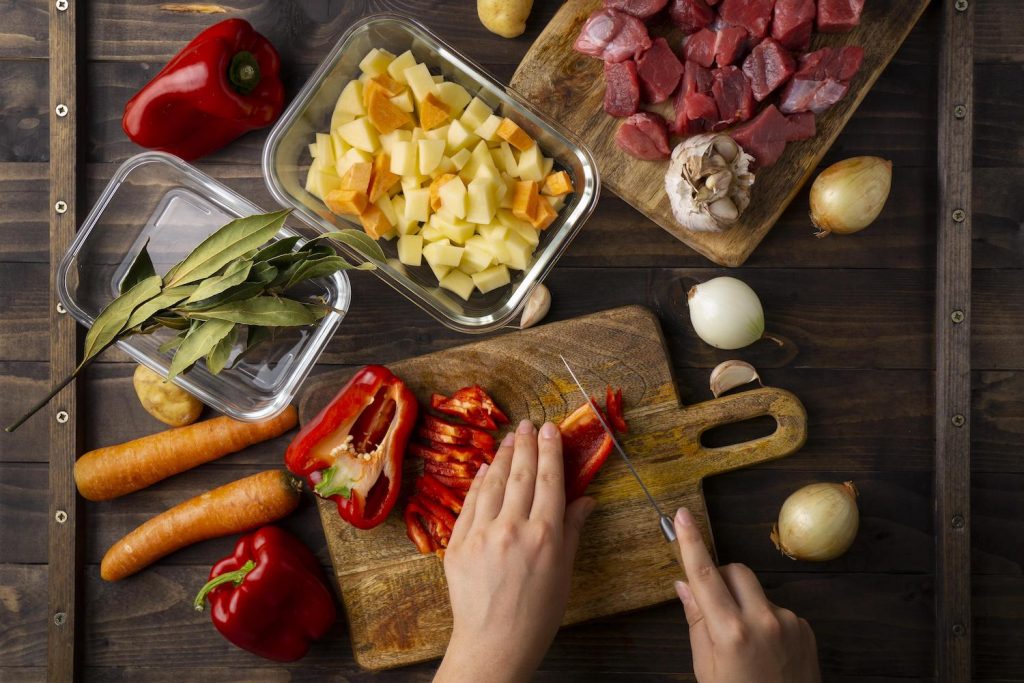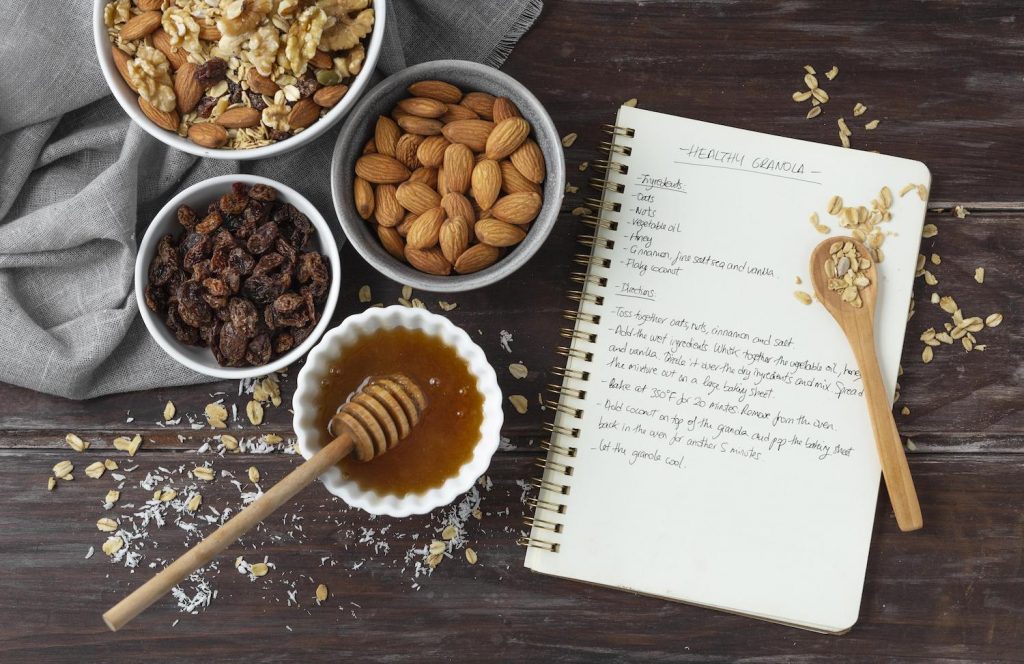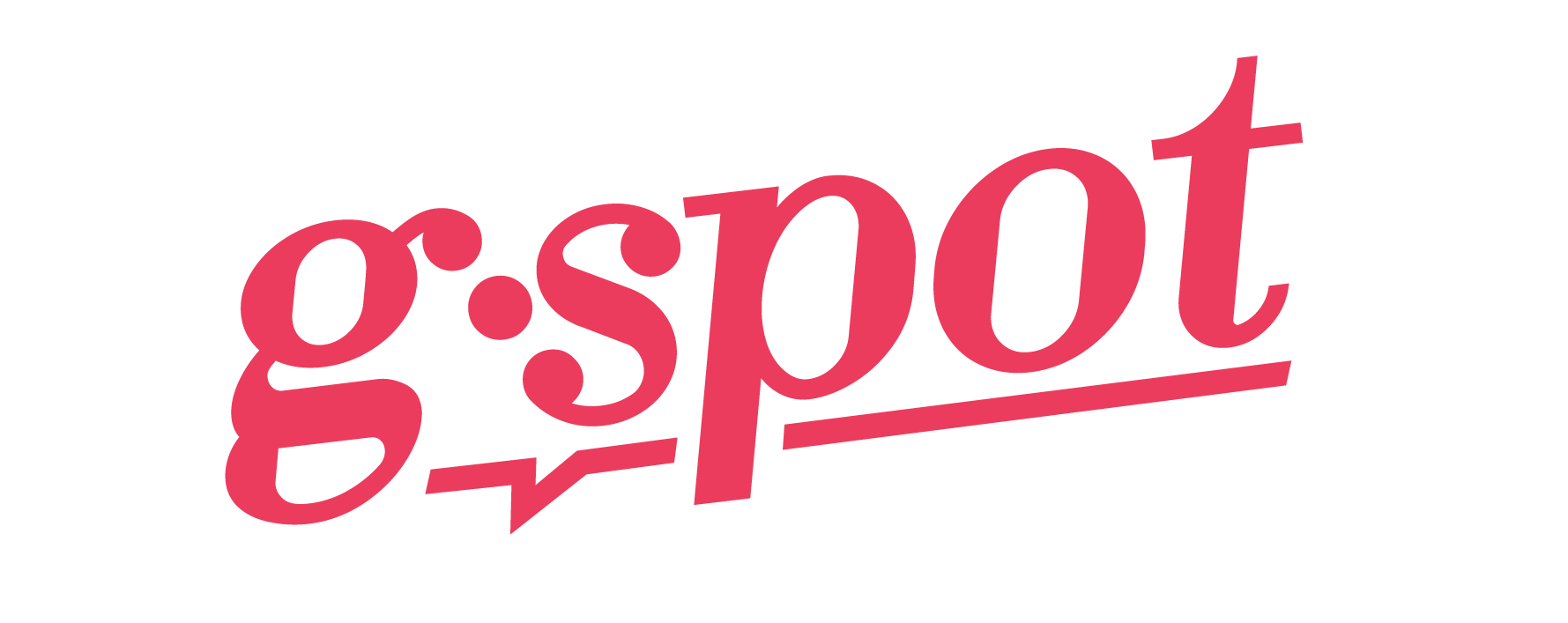“If you fail to plan, you plan to fail.”—Benjamin Franklin
The common material that most people approach a dietitian for is a meal plan.
A little disclaimer though: Getting a meal plan is not the only thing you’d need to achieve your health or weight loss goal. It is merely a guide and is not the total solution for your health concerns. However, it is a very useful tool especially at the beginning of one’s nutrition program.
That said, a meal plan is highly useful for those who are starting out in their health and weight management (either weight loss or weight gain) journey. Just as in solving a problem, one must plan and prepare the methods to do so. And meal planning is among the first and basic methods to pave the way for success in your health journey.
Initially, you can have it done by your dietitian, but eventually, you’ll be learning to do it on your own so you can manage your health independently, especially when you’ve reached the maintenance phase (graduation) of your program. It’s best to accept that this will be part of your life for the long haul if you want to keep the progress you’ve made from your health journey.
It might sound daunting and complicated, especially for those who don’t know how to cook, but there really are more reasons to do it than to ditch it. Even just watching Jamie Oliver and his adorable son Buddy teach us their recipes is enough to get some inspiration and ideas on how fun and doable cooking can be (check them out on Instagram or Youtube!)
WHY
Saves money
Cooking your own meals costs much less than dining in a restaurant since you’re skipping on the cost of rent, manpower, and utilities added to your bill. Also, when you invest in food that helps keep you healthy, you’ll be saving a lot of money in the long term from hospital bills and medication expenses.
Stress less
Thinking about what to eat can be really stressful for most of us, so we would be doing ourselves a big favor when we plan our meals ahead. Your workflow and daily routine will become more seamless and you will most likely be in a better mood.
Your meal, your way
When you prepare your own meals, you get to ensure that it’s exactly the way you want it and you have peace of mind knowing exactly what’s in it — safe, clean, healthier food.
Cooking can be therapeutic and fun
Cooking is not only a necessary life skill, but it’s also an avenue for creativity and self-expression, and even a therapeutic outlet to relieve one from the stressful hustle routine. I like to say, “Cooking is just as sensual as it is essential.” I believe everyone has an artistic side to them, because we were made by the greatest Artist of all—God, the Creator of the great universe that we all live in.
It’s even much easier now to learn new recipes and enjoy cooking with all the video tutorials and recipes we can find on Youtube and the Internet. You can’t run out of them, so it’s definitely an activity you can enjoy for the rest of your life. It’s also a great way to get off the screen and spend time with your loved ones or even just yourself. The kitchen is an extension of my dance floor in the house and it could be yours, too. 😉
Get to your goals
Studies have shown that meal planning is associated with a healthier diet and less obesity.1 So, definitely, this supports what I mentioned earlier about how meal planning is an essential tool to achieve your health goals.
Now that you’re geared up with all the great reasons to start planning your own meals, here are the best tips I can give to make it easier for you:
HOW
Make your menu

Whether you’re planning it on a weekly or monthly basis, a good principle to keep in mind is “Eat food, not too much, mostly plants” from Michael Pollan, an award-winning author who explores the socio-cultural impact of food.
My tip here would be to try eating plant-based as much as possible. Research shows that plant derivatives provide massive benefits, especially since plant protein sources provide fiber and more anti-inflammatory, cell-supporting nutrients that animal protein has very little of. Eating a plant-based diet also helps the environment significantly.
It doesn’t have to be full-blown right away; you can simply start with one meal or one day per week. But, before that, it would also be smart to check your pantry and kitchen for what ingredients and cooking appliances or equipment you already have and plan your recipes around those, too. So, keep your inventory in check, maximize what you have, and get planning!
Consider each food group
Learning the basics of nutrition from your nutritionist will help you plan your meals in a way that prevents you from getting micronutrient insufficiencies or deficiencies. The key is to make sure all food groups are present each meal — non-starchy carbs (vegetables and fruits), starchy carbs (energy food), protein, and healthy fat (virgin coconut oil, avocado, nuts and seeds), following the Pinggang Pinoy (healthy plate model) recommended by the National Nutrition Council.
Stock up on staples
Having a master list for your pantry staples and keeping them in stock also help make meal planning and cooking easier and more convenient. You can make sure that you have basic and important ingredients anytime you need them.
Shop local and seasonal
When you’ve got the plan, it’s time to get what you need. Supporting local is not only good for the economy but good for your health, too. Choosing fruits and vegetables in season is fresher and therefore more nutritious, and it’s cheaper than off-season items.
Cop some convenience
Taking advantage of convenience items such as pre-cut vegetables and fruits is not a crime! Just make sure that the convenience items you purchase are not the processed kinds. Pre-cut vegetables and fruits save you some time in the kitchen, especially if you have a demanding schedule.
Get organized
You can also rearrange your kitchen and pantry to make your workflow smoother. Keep commonly-used items near your prep and cooking area. Also, keep stock of labeling items such as a marker pen and masking tape to label your food prep, leftovers, and especially frozen inventory. Work smart!
Cook in batches and components
This works for both individuals and families. You don’t have to prep each meal, but rather, cook in food groups and just mix and match throughout the week. No need to cook different items for each day. Cooking in batches also saves time and money. Make larger quantities of food so you can just freeze and reheat them.
Learn to use leftovers
There’s nothing wrong with eating leftovers. It’s all part of meal prepping reasonably and responsibly. Just make sure that you consume them within three days of keeping them in your refrigerator.
Record and collect recipes

Keeping a recipe library or archive will help you recreate and improve successful recipes. It’s also a good idea to compile your recipes in one folder or notebook, and you can compile your tried and tested recipes as well as new recipes to try to keep your kitchen journey exciting.
Invest in the right tools and equipment
Investing in the right tools and equipment will also help make your meal prep life a whole lot easier as you go along. Invest in durable food-safe containers, good-quality knives, kitchen utensils, basic and multi-purpose pots and pans, etc.
It’s not about having a complete kitchen all at once — although that would be great — but this can be a fun journey to grow and design your kitchen. Salamat Shopee!
By now, you must have realized that meal planning is more than just creating a menu for the week or month; it can also involve a total pantry and kitchen makeover. But, don’t get overwhelmed. You are more than welcome to take it slow and easy. It’s a journey of finding the system that works for you.
So, if you’re not meal planning yet, it’s time to start now. It might just be the gamechanger for you. It may not be easy, but it’s definitely worth it. And, if you’re cooking for a household, then you are extending the benefits to everyone else in it, too—win-win! And when, at some point, you feel exhausted already, feel free to take a break for a week or two and just order a meal delivery such as Diet in a Box or Replenish by Lunhaw. You can also get ideas from these meal providers on new recipes you might want to try for your next menus. Don’t forget to have fun with it!
REFERENCES:
Ducrot P, Méjean C, Aroumougame V, Ibanez G, Allès B, Kesse-Guyot E, Hercberg S, Péneau S. Meal planning is associated with food variety, diet quality and body weight status in a large sample of French adults. Int J Behav Nutr Phys Act. 2017 Feb 2;14(1):12. doi: 10.1186/s12966-017-0461-7.






